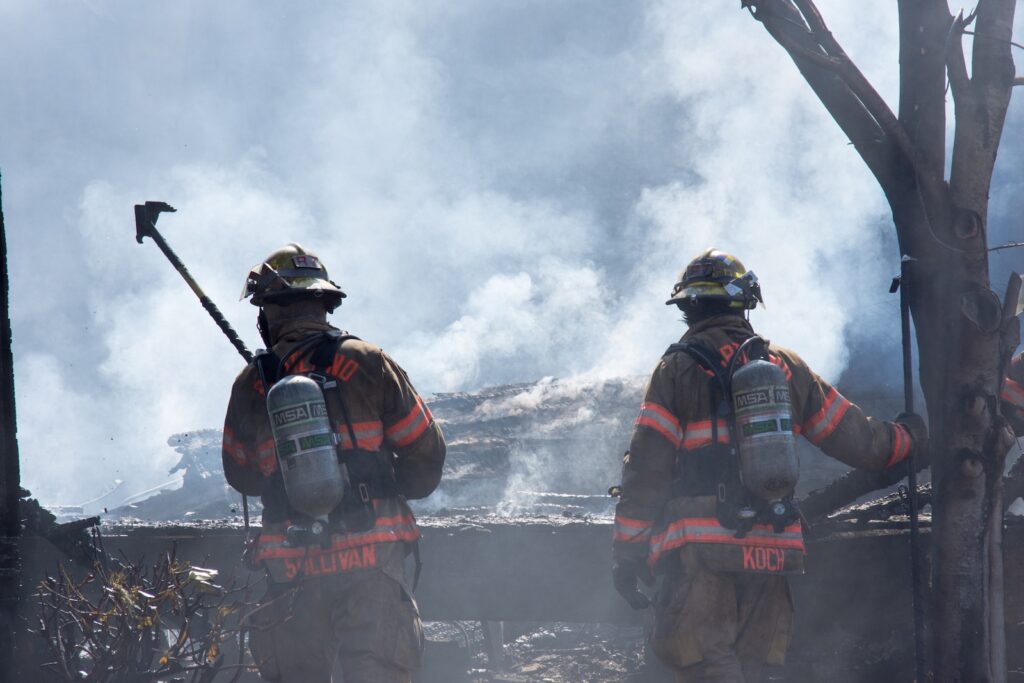Arsonists at a firefighting convention: Is COP28 a cop-out?
As the UN Climate Summit continues in Dubai, host nation United Arab Emirates continues to stoke anger with decision-making around the conference.
It all began last Wednesday, when news first hit that those behind staging COP28 had been planning on using the arrival of world leaders from across the globe as an opportunity to broker a few fossil contracts. The fact many were hoping for a ‘deal-to-end-all-deals’ from the 15 day event, in the shape of an agreement to end fossil fuel use altogether, accentuates brings double standards into sharp relief.
UN Secretary General António Guterres has urged those in corridors of power not to squander the opportunity to strike such a game changing climate pact. And the chances of that happening could be boosted by the speed at which a historic agreement on payment for climate loss and damages was finalised. But then summit president, Sultan Al Jaber, publicly contested the science behind reducing gas and oil consumption, questioning if this was a realistic way of limiting global warming to 1.5C or even 2C above pre-industrial levels.
Indicative of wider lines that divide many interests at COP28, yesterday news broke that a record number of fossil fuel lobbyists have been given access to this year’s event. Meanwhile, veteran environmental journalist Fiona Harvey was left to tweet her complaints about being part of a group of reporters denied entry to a press conference room without a special ticket. The juxtaposition between these two experiences is particularly ominous.
Journalists being told we can’t access the main press conference room #Cop28 without special tickets. And an escort. Security won’t let us through. This is absurd. Not transparent and very not helpful.
— Fiona Harvey (@fionaharvey) December 1, 2023
‘You don’t bring arsonists to a firefighting convention’ Climate Action Network International posted to X on Tuesday morning amid reports there were more representatives from the oil and gas industry at COP28 than delegates from the 10 most climate-vulnerable countries combined, and more than seven times the number of Indigenous representatives. Overall, 2023 will see a 400% increase in fossil fuel-aligned attendees compared with last year.
The United Arab Emirates (UAE) was always a controversial choice for host nation, partly for this reason. Dubai is a mega-city that has risen from sand dunes over the past 30 years, fuelled by petroleum profits. The state itself has around 6% of the planet’s remaining oil and gas reserves. The impact of that economy is visible not just in towering skyscrapers reliant on mass energy consumption to keep their interiors at a liveable temperature, nor man-made islands in the sea, but also the horrendous record on air pollution that has also made headlines in the past few days.
According to Human Rights Watch, between 2018 and 2023 those living in Dubai have been exposed to dangerously poor air quality, with PM2.5 fine particulate matter some three times higher than maximum recommended limits. The biggest contributor to this is human activity, not least the production and use of fuels, whether that’s nearby oil facilities or the super highways that command most of the travel and traffic in the region.
Worryingly, the charity – which exposes human rights violations worldwide – believes that despite the high levels of air pollution a hard line stance on dissent prevents public democratic debate on the subject. Moreover, it’s the least economically advantaged in society that are bearing the brunt, again, as they are most likely to perform tasks that expose them to dirty air and live in poor quality housing close to pollution sources.
Fossil of the Day awards are given out every day at #COP28 to countries saying one thing then doing another or just firing on with the burning regardless. Today’s runners up are Japan & Russia while USA scooped top spot for doing as much as it can to deliver as little as poss 🔥 pic.twitter.com/dtWz9ic8DA
— Shauna Corr 🌍 (@ShaunaReports) December 5, 2023
Of course, we made similar arguments last time round, when Egypt welcomed the environmental world. And when the UK hosted, 12 months before that, the hypocrisy was no less visible – as the country that ignited the industrial revolution and carbon age, and a nation that consistently shows itself to be anything but green. Those preceding editions of COP were not without scandal, yet it’s hard not to deny this latest iteration has surpassed both for all the wrong reasons.
Looking beyond the UAE things don’t look much better, either. The UK Conservative Party fell on its own sword again after using a picture of Rishi Sunak on a private jet, surrounded by aids, to broadcast the fact he was en route to the summit. This was just days after King Charles III took a similar route to deliver his keynote speech as an environmentalist of international repute. Meanwhile, the USA, New Zealand, and Japan, have all received Fossil of the Day prizes far for misplaced, ill-conceived or negligent environmental policies.
And therein lies the problem with COP. For as much as these talks have an incredibly important role to play in the path towards net zero and safeguarding a liveable future on Earth, critics can also quickly point to the fact we have superyacht manufacturers giving presentations to delegates. Sure, they might be expounding on more sustainable approaches to luxury private travel, but this should never sit well in a world where we know inequality and rich-poor divides are contributing to, and exacerbated by, the climate crisis. Legitimacy is at stake, and the world can ill-afford to lose it.
More on COP28:
Image: Benjamin Kerensa

















